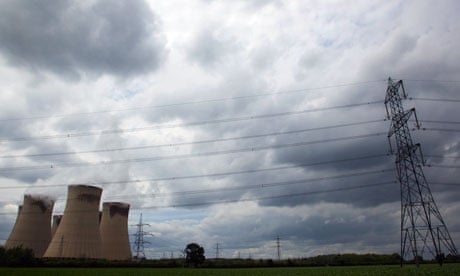Big wood companies are trying to halt Drax, RWE and others pressing ahead with a raft of lower-carbon energy schemes which would see large power stations switch from burning coal to timber.
The wood industry fears thousands of jobs in its factories will be threatened by the "green" power plans and wants government to remove the subsidies facilitating them.
Wildlife and environmental groups are also alarmed that the new biomass schemes could trigger a huge escalation in wood imports and threaten rainforests.
The Wood Panel Industries Association said: "We have already seen a 50% increase in wood prices over the last three years because of these kinds of energy developments and we do not think they should be receiving subsidies for schemes which we believe are not carbon-friendly and which will require a huge amount of imported wood to support a tenfold increase in planned capacity."
The lobbying has started ahead of a planned consultation by the Department of Energy and Climate Change into the future level of subsidy through the renewable obligation certificate (ROC) system.
The current subsidy regime for biomass and other clean technology such as wind power runs until 2013. New "banding" is being considered that will run until 2017.
A DECC spokesman said the department was aware of concerns from interest groups about a major escalation in biomass but said it had safeguards in place. "The very clear sustainability criteria we now have in place under the renewables obligation will mean we know where biomass has come from and how it has been grown.
"The UK criteria also include a minimum greenhouse gas emission saving of 60% compared with EU average fossil-fuel use, and restrictions to prevent use of land, such a primary forest and other land important on carbon or biodiversity grounds, from being converted to grow biomass. These criteria apply to both imported and UK biomass."
It is not just companies such as Canada's Norbord and Austria's Egger which are worried about the future of the British factories they run to supply the construction industry and others with wood.
The RSPB wildlife campaign group also says it is "by no means certain" biomass is a low-carbon energy source. Its new report , Bioenergy: a burning issue, says the power companies will move from a 74% dependency on British wood to an 80% dependency on imports where sustainability will be far harder to verify.
Friends of the Earth says it is also concerned about the large-scale imports of biomass wood from overseas which would be "impossible" to control and could create terrible damage through deforestation in the developing world.
The RSPB claims there are 31 biomass plants in operation but 14 more have been approved, 16 are in the planning stage and a further nine have been proposed.
Drax has been co-firing its main 4,000-megawatt plant using coal and a small amount of biomass but has talked about introducing three standalone biomass plants on the same Yorkshire site if the right subsidy regime is in place.
RWE has plans to convert its 1,050-megawatt coal-fired power station at Tilbury in Essex to run entirely on wood pellets, which would make it the UK's largest biomass plant. The German company has made clear it will import most of the wood supplies from the US.
The Biomass Energy Centre, run by the UK Forestry Commission, argues that wood derived from sustainable forests, where new trees are planted when others are cut down, releases far less carbon than traditional fossil fuels.
"The critical difference between biomass fuels and fossil fuel is that of fossil and contemporary carbon," it says. "Burning fossil fuels results in converting stable carbon sequestered millions of years ago into atmospheric carbon dioxide when the global environment has adapted to current levels.
"Burning biomass fuels, however, returns to the atmosphere contemporary carbon recently taken up by the growing plant, and currently being taken up by replacement growth."

Comments (…)
Sign in or create your Guardian account to join the discussion